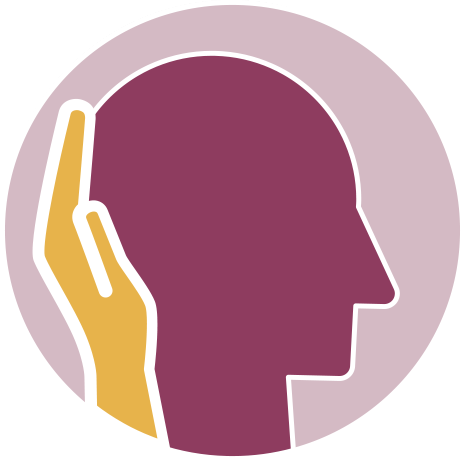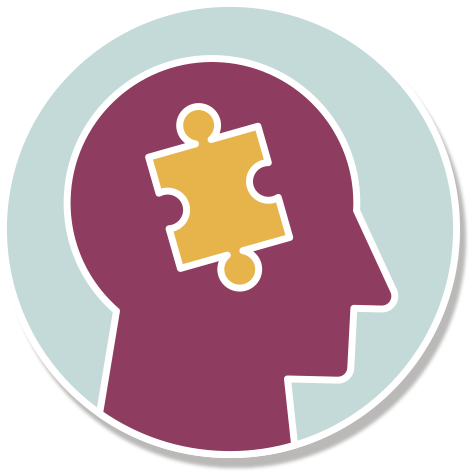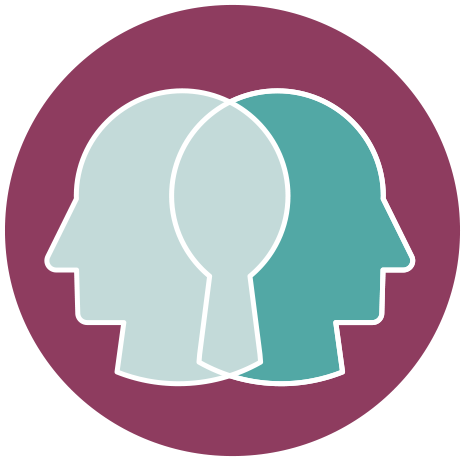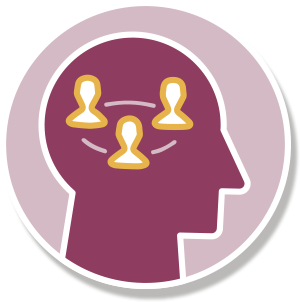We all know these moments, when we are fully present in the moment, such as when we are watching a breath-taking sunset, working in the garden, listening to beautiful music, or having any other similarly intense experience. The mind goes quiet and we are all attention, as we taste the richness of the moment. To be mindful is to be fully aware of the present experience; the here and now. Mindfulness is the basic human ability to be fully present, aware of where we are and what we’re doing, and not overly reactive or overwhelmed by what’s going on around us. While mindfulness is something we all naturally possess, it’s more readily available to us when we practice on a daily basis.
What is Mindfulness?
Mindfulness is a very simple form of meditation that was little known in the West until recently. A typical meditation consists of focusing your full attention on your breath as it flows in and out of your body. Focusing on each breath in this way allows you to observe your thoughts as they arise in your mind and, little by little, to let go of struggling with them. You come to realise that thoughts come and go of their own accord; that you are not your thoughts. You can watch as they appear in your mind, seemingly from thin air, and watch again as they disappear, like a soap bubble bursting. You come to the profound understanding that thoughts and feelings (including negative ones) are transient. They come and they go, and ultimately, you have a choice about whether to act on them or not.
Mindfulness is about observation without criticism; being compassionate with yourself. When unhappiness or stress hover overhead, rather than taking it all personally, you learn to treat them as if they were black clouds in the sky, and to observe them with friendly curiosity as they drift past. In essence, mindfulness allows you to catch negative thought patterns before they tip you into a downward spiral. It begins the process of putting you back in control of your life.
Essentially, mindfulness helps train your attention to be more aware of what is actually happening, rather than worrying about what has happened or what might happen. We learn to bring greater curiosity to whatever it is we experience. Jon Kabat-Zinn, the founding father of secular mindfulness, described mindfulness as: “Mindfulness means paying attention in a particular way: on purpose, in the present moment, and nonjudgmentally.”
Paying more attention to the present moment – to your own thoughts, body sensations and feelings, and to the world around you – can improve your mental wellbeing.
The greater your ability to direct your attention, the better you will get at distancing yourself from distracting unhelpful thought patterns that keep circulating in your head. By practicing mindfulness, you will learn to make conscious choices instead of responding on autopilot. You will find it easier to concentrate, easier to relax. Your mind will settle down.It will create a higher state of awareness and better enable you to sense and safeguard your boundaries.

What is Mindfulness-Based Stress Reduction (MBSR)
Jon Kabat-Zinn is a molecular biologist by trade and has ample experience in meditation and yoga. Using knowledge from these three domains, he developed a program to empower patients to take their health into their own hands and change their experience of it. His approach revolves around the idea of developing the quality of attention. He called this program Mindfulness-Based Stress Reduction (MBSR).
Originally developed to help patients dealing with chronic pain it has since been shown to have lasting benefits for a wide range of participants and is particularly helpful for people dealing with stress and anxiety. The course gives a practical and experiential introduction to a range of mindfulness practices. MBSR is an eight-week program where each class is two and a half hours in length and includes a days retreat.

What is Mindfulness Based Cognitive Therapy (MBCT)
Later, a cognitive psychologist called Zindel Segal teamed up with Mark Williams and John Teasdale to develop an adaptation of Mindfulness-Based Stress Reduction that included elements of cognitive behavioural therapy: Mindfulness-Based Cognitive Therapy (MBCT). This form of mindfulness training is intended for people with a history of depression, helping them prevent a relapse by giving them mindfulness as a tool to manage their condition. Certain elements of this program are focused specifically on depression. However, MBCT only differs from MBSR on a very small number of elements.
Participants learn to recognise specific patterns of negative thinking that people with depression are vulnerable to, and over the 8 week course develop resilience and confidence in their ability to respond to them skilfully. MBCT is recommended by the National Institute for Health and Clinical Excellence (NICE).
At Mindful Matters, we generally use the overarching concept of ‘mindfulness training’ for a training that integrates aspects of both MBSR & MBCT courses. This is because we believe MBCT adds several elements that are highly valuable for the general public. Therefore most of our courses offer MBSR with some aspects of MBCT.
Who can benefit?
Thousands of peer-reviewed scientific papers prove that mindfulness enhances mental and physical wellbeing and reduces chronic pain. Clinical trials show that mindfulness is at least as effective as the main prescription painkillers while also enhancing the body’s natural healing systems.
- Anxiety, stress, depression, exhaustion and irritability all decrease with regular sessions of meditation.Memory improves, reaction times become faster and mental and physical stamina increase. In short, regular meditators are happier and more contented, while being far less likely to suffer from psychological distress.
- Mindfulness can dramatically reduce pain and the emotional reaction to it. Recent trials suggest that average pain ‘unpleasantness’ levels can be reduced by 57 per cent while accomplished meditators report reductions of up to 93 per cent.
- Clinical trials show that mindfulness improves mood and quality of life in chronic pain conditions such as fibromyalgia and lower-back pain, in chronic functional disorders such as IBS, and in challenging medical illnesses, including multiple sclerosis and cancer.
- Mindfulness improves working memory, creativity, attention span and reaction speeds. It also enhances mental and physical stamina and resilience.
- Meditation improves emotional intelligence.
- Mindfulness reduces addictive and self-destructive behaviour. These include the abuse of illegal and prescription drugs and excessive alcohol intake.
- Meditation enhances brain function. It increases grey matter in areas associated with self-awareness, empathy, self-control and attention. It soothes the parts of the brain that produce stress hormones and builds those areas that lift mood and promote learning. It even reduces some of the thinning of certain areas of the brain that naturally occurs with ageing (although this may result primarily from a reduction in stress levels).
- Meditation improves the immune system. Regular meditators are admitted to hospital far less often for cancer, heart disease and numerous infectious diseases.
- Meditation and mindfulness improve control of blood sugar in type II diabetes.
- Meditation improves heart and circulatory health by reducing blood pressure and lowering the risk of hypertension. Mindfulness reduces the risks of developing and dying from cardiovascular disease and lowers its severity should it arise.

Tips for Mindfulness
Reminding yourself to take notice of your thoughts, feelings, body sensations and the world around you is the first step to mindfulness.
Notice the everyday
“Even as we go about our daily lives, we can notice the sensations of things, the food we eat, the air moving past the body as we walk,” says Mark Williams. “All this may sound very small, but it has huge power to interrupt the ‘autopilot’ mode we often engage day to day, and to give us new perspectives on life.”
Keep it regular
It can be helpful to pick a regular time – the morning journey to work or a walk at lunchtime – during which you decide to be aware of the sensations created by the world around you.
Try something new
Trying new things, such as sitting in a different seat in meetings or going somewhere new for lunch, can also help you notice the world in a new way.
Watch your thoughts
“Some people find it very difficult to practice mindfulness. As soon as they stop what they’re doing, lots of thoughts and worries crowd in,” says Mark Williams.
“It might be useful to remember that mindfulness isn’t about making these thoughts go away, but rather about seeing them as mental events.
“Imagine standing at a bus station and seeing ‘thought buses’ coming and going without having to get on them and be taken away. This can be very hard at first, but with gentle persistence it is possible.
“Some people find that it is easier to cope with an over-busy mind if they are doing gentle yoga or walking”.
Name thoughts and feelings
To develop an awareness of thoughts and feelings, some people find it helpful to silently name them: “Here’s the thought that I might fail that exam”. Or, “This is anxiety”.
Free yourself from the past and future
You can practise mindfulness anywhere, but it can be especially helpful to take a mindful approach if you realise that, for several minutes, you have been “trapped” in reliving past problems or “pre-living” future worries.
Interested in taking a mindfulness training? Check the schedule for start dates.

FAQs
The direct benefit is living our lives in this moment with awareness instead of “on automatic pilot” or solely in the past or future.
People often report greater joy for the simple things in life, such as a shared moment with their child or partner or more aware of the change of seasons as flowers bloom and snow falls. We begin to realise that there is more “right” with us than “wrong” with us as we become more engaged in our lives. Many of the side effects of mindfulness meditation found in scientific research include decrease in psychological symptoms such as anxiety and depression as well as greater stability in physical symptoms such as blood glucose levels and blood pressure.
Ultimately, it is an empirical question and everyone is encouraged to find out for themselves how mindfulness meditation might benefit their lives.
Mindfulness-Based Stress Reduction was designed for adults; 18 years and over. Parents of children or adolescents may wish to explore other mindfulness programmess such as “.b” dotb. “.b” trained mindfulness instructors are qualified to teach mindfulness to 11 – 18 year olds.
Please see https://
No…While prior mindfulness practice may motivate individuals to take MBSR, I have no expectations that participants have experience with meditation or yoga or any other mindfulness practice. Everyone will have the opportunity to explore and experience mindfulness while having a skilled teacher to guide and help answer questions about practice.
For those that have experience with meditation or yoga in the past, the course can be a good refresher to rebuild a strong daily practice.
No…It is not necessary to read any books prior to attending the MBSR class. In fact during the class we recommend not reading any books, as mindfulness is a highly experiential process. I invite you to use this time to investigate your own process and experience of the course and then after it is finished it may be useful to expand your understanding through reading books such as the ones listed below:
Full Catastrophe Living by Jon Kabat-Zinn
Mindfulness – Finding Peace in a Frantic World by Mark Williams
Heal Thyself by Saki Santorell
No…You will not need to have a textbook or a notebook for the MBSR class itself. We recommend that while in the class you don’t take notes. I will include many things you may want to reference in a workbook given to all participants. Some participants have found it helpful to keep a journal outside of the class to note experiences during the unfolding of the class.
Yes… Mindfulness is a highly experiential practice and therefore engaging in the formal mindfulness practices is perhaps the most important component of the course. I encourage all of the participants to use the 8-weeks as a testing ground for the mindfulness practice. In this way you will be able to see what benefits may come from taking the course. After the class participants are encouraged to continue with their mindfulness practice as it fits and supports their lives.
Mindfulness practice is a major component of each class meeting as well as the time in-between classes. During the week participants use mindfulness CD’s or MP3’s to support daily practice. The CD’s/MP3’s contain mindfulness mediations and yoga sequences that vary in length from 20-45 minutes long.
Yes… Mindfulness is not about sitting still or moving slowly. Mindfulness and MBSR is about bringing attention to this moment whether it is stillness or restless. Participants will be engaging in many different forms of mindfulness practices which include sitting, lying down, standing, and moving. Participants are encouraged to take care of themselves. If you need to leave the room and walk a bit and then come back that is an option. The class may also be a good place to explore the edges of our boundaries with this and to notice what it is like to stay with this and notice if it perhaps changes over time.
No… The class is open to a wide variety of individuals who may have a wide variety of abilities. The yoga is designed to be gentle and the focus is more on giving attention to the movement (even if imagined) than to the particular posture. Participants are encouraged to let me know if they have any physical challenges. This allows me to fully support participants as they engage in the mindfulness practices; helping modify the practices to fit the individual. There will always be the encouragement to take care of yourself in the best way possible.
There are some conditions where participants are encouraged to be under the care of a mental health professional or medical doctor and in still other cases participants are encouraged to delay entering an MBSR program or seek other treatments.
A partial list of conditions or life situations may include a history of substance or alcohol abuse with less than a year of being clean or sober, thoughts or attempts of suicide, recent or unresolved trauma, as well as being in the middle of major life changes. The hope is that participants can complete the MBSR course at a point in their life where they are supported and able to gain full benefit from the mindfulness practices.
MBSR and MBCT can be a wonderful compliment to psychotherapy. If you are currently in therapy I recommend that you speak to your therapist about your intention to participate in an 8-week course. My preference is that your therapist is in support of your taking the class.
MBSR is secular and was developed in a way that is accessible to all people regardless of the religious traditions or beliefs. Mindfulness practice is really just about being awake to our lives as they are and working with seeing our process and ourselves more clearly. This tends to be a good compliment to many religious traditions in ways that you can explore as you develop your practice.









